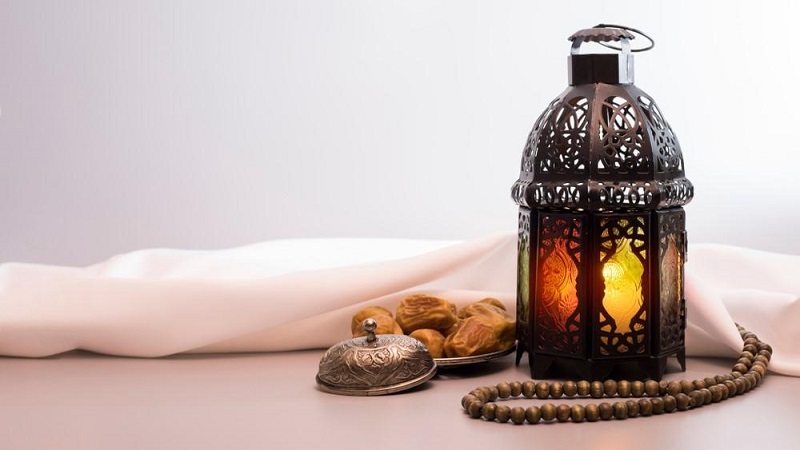Islam is derived from the word “Sa la ma,” which reflects safety, security, peace, and a whole submission to Allah. Good health is a gift of God, and Islam helps Muslims in attaining the wealth of good health.
Being with a family member, a sense of safety prevails in your mind, then imagine when you are under the guidance of Allah, who is the most powerful of all. When you surrender yourself to Him, an innate sense of security and peace of mind welcome you.
When Islam puts dietary restrictions on its followers, the intention is not to exercise power but to guide Muslims toward the principles of good health. While practicing their religion, Muslims not only develop spiritually but also boost their physical and mental health.
Islam – An All-encompassing Religion
Guidelines for everyday routine provided by Islam have been scientifically approved. There are numerous examples where scientists discovered the health benefits of certain food or activity using research and technology, but the same had been already written some 1400 years back in the Holy Quran.
You can find infinite health guidance in Quran and Sunnah. The life of Muhammad (PBUH) is itself a practical example of Islamic teachings.
Here we have mentioned 10 health tips from Islam. These guidelines are not just restricted to Muslims, but people all over the world can take advantage of them.
1. Moderation Leads to Balanced Life
Islam teaches its followers to practice moderation in eating and drinking. Allah says in Quran’
“Do eat and drink, but do not cross the limits; indeed, Allah does not like people who commit excess.”
(Surah Al-A’raf, 31)
Prophet Muhammad (SAW) used to eat in such a way that one-third of their belly would remain empty even after taking a meal. This practice boosts digestion and makes space for easy breathing.
Science also recommends avoiding both overeating and less eating. Overeating can lead to obesity and related health concerns, while too little intake of food can result in malnourishment and put survival at risk.
2. Prayers Encourage Physical Exercise
Many studies evaluated that individuals who pray daily have many times better health status than those who pray less frequently or not at all. Praying five times a day makes a smooth routine in our life. This light dose of exercise is enough to keep our blood circulating.
Prayer patterns are very creatively organized by God. Prayers after a meal are longer such as Night Prayer, to assist in digestion after the heavy meal, while those with empty smoke are shorter such as Morning Prayer.
Being a Muslim, you should not miss this thoughtfully organized pattern of prayers. Download the Muslim Pro app that will remind you to take all the necessary specks of exercise five times a day.
3. Cleanliness to Ensure Personal Hygiene
Cleanliness is half of faith in Islam. The prerequisites for prayer include a clean body, clothes, and the place.
Tirmizi, Adab, 41 urges, “indeed, Allah is Himself clean, so He adores cleanness.”
Islam teaches that waste should not be disposed of openly, and daily showers must be taken. These guidelines indicate the significance of cleanliness in Islam. Science also recommends that you must follow hygiene principles to ensure maximum health.
4. Male Circumcision Avoids Health Risks
Babies who are born in Muslim families are circumcised as per Islamic guidelines. But there are many health benefits hidden in this ritual.
According to research, the probability of sexually transmitted diseases, penile cancer, and urinary tract infection is lower in males who practice circumcision.
5. Eating Nigella Seeds Cure Every Disease
Nigella seeds have infinite health benefits. Islam insists on the inclusion of black seeds in everyday routine. Hazrat Abu Huraira narrates:
Prophet Muhammad states remedy for every disease can be found in Nigella seeds, excluding death.For several health implications such as obesity, congestion, high blood pressure, and digestive disorders, these seeds or powdered forms are effective.
6. Covering Food Avoids Contamination
Kitchen utensils, either empty or containing food, must be properly covered to avoid any sort of contamination, especially poisonous organisms. Prophet Muhammad (PBUH) said:
Utensils should be covered, and the mouth of water pots should be closed. (Bukhari)
7. Midday Nap Provides Relief to the Body
Islam recommends its followers sleep in the afternoon because it relaxes crucial organs of the body such as the heart and muscles.
Prophet Muhammad (PBUH) used to take a short midday nap and encouraged their companion to do the same. Thumamah ibn Uthal states:
After lunch, Um sulaim had a habit of spreading a leather sheet for Prophet Muhammad (PBUH) to sleep for some time.
8. Use of Siwaak/Bruch Ensures Dental Care
A toothpick sort of brush, which Muslim calls Siwaak, is used to cleanse the mouth and teeth. Prophet Muhammad (PBUH) always used siwaak and also recommended it to his companions.
He said:
“Siwaak cleanses the mouth and gratifies Allah” (Sahih al-Bukhari)
Siwaak easily removes the food stuck in your teeth and eliminates the chances of tooth cavities, gum infections, and tooth decay. Use siwaak after every meal to ensure your dental health.
9. Avoiding Intoxicants Saves Human Life
Alcohol, cigarette smoking, and other intoxicants are considered unlawful in Islam. Quran says;
“Islam opposes humans from using intoxicants”(Surah Maidah, 90, 91)
Everyone knows the devastating effects of cigarette smoking on human health. Similarly, alcohol is a well-known dietary restriction because its consumptions lead to a number of chronic illnesses such as anemia, Alzheimer’s, cardiovascular disease, and cancer.
10. Avoid Gobbling Food and Drinks
Islam insists on eating food slowly and chewing food well before swallowing. Your stomach has no teeth, so chew food enough so that it won’t become a burden for your stomach after swallowing.
It takes some time for your brain to receive the signal that your stomach is full. When you eat hastily, you have already eaten more than the requirement. So slow eating ensures that you have not consumed extra calories.
Conclusion
There are numerous examples to quote regarding health tips mentioned in Islam. The Holy Quran is a complete guide for the followers of Islam. Therefore, if you want to maintain safe and sound health, follow the practices of Islam.

